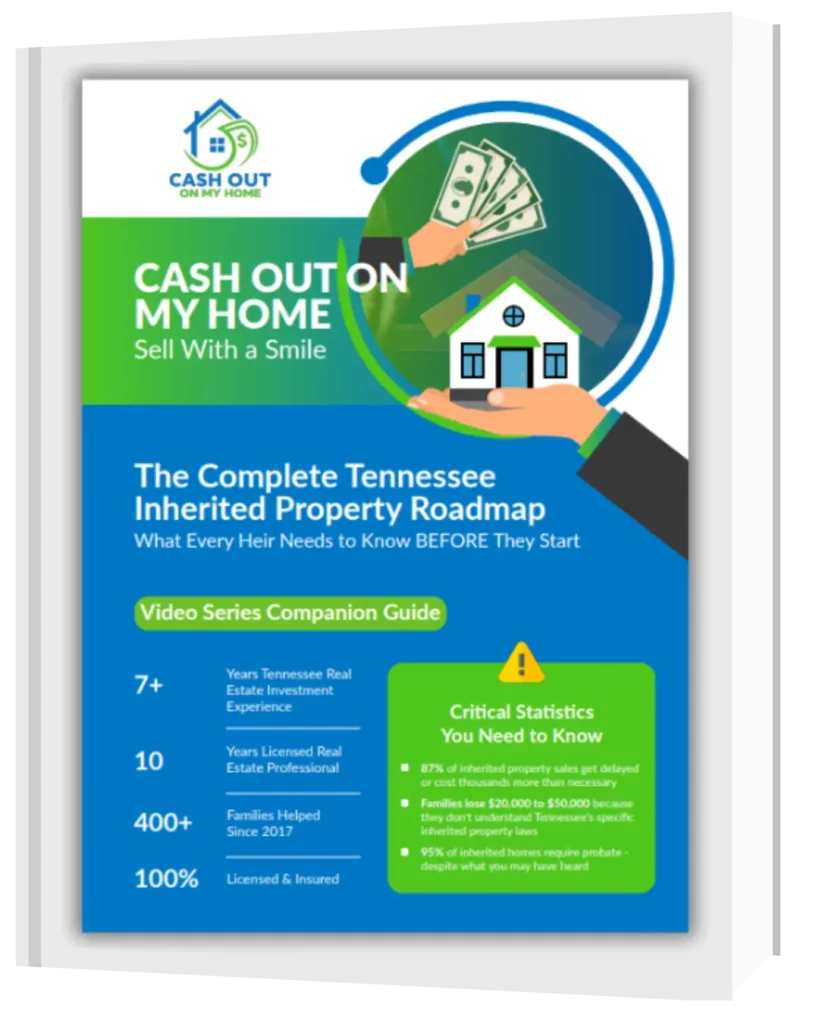Probate can be an emotional and complex experience, especially when it’s intertwined with the loss of a loved one. If you’ve inherited a probate property in Tennessee, understanding the steps involved can make the process easier to manage. In this article, we’ll dive into everything you need to know about probate in Tennessee, from its basic definition to navigating the eight essential steps in the process, along with tips to help you handle it more effectively.
What is Probate?
Probate is a court-supervised legal process that might be necessary after someone passes away. The probate process in Tennessee generally involves filing the deceased’s will (if there is one) with the appropriate court, appointing an executor or administrator, inventorying and appraising assets, paying off debts and taxes, and distributing remaining assets to heirs or beneficiaries. Essentially, probate gives legal authority to a designated individual, usually the closest surviving relative or spouse, to manage the deceased’s assets, settle outstanding financial obligations, and transfer the assets to the rightful inheritors.
Determining If Probate is Necessary
Not all assets need to go through probate. In Tennessee, only assets solely owned by the deceased usually require probate. Some assets, like jointly owned properties or accounts, pass directly to surviving owners without court intervention. Here are some scenarios where probate may not be necessary:
- Jointly Held Property: Assets such as homes or bank accounts jointly owned automatically transfer to the surviving owner.
- Tenancy by the Entirety: Real estate jointly owned with a spouse generally transfers to the surviving spouse.
- Transfer on Death (TOD): Tennessee allows TOD designations for certain assets like securities, which transfer directly to beneficiaries.
- Living Trust Assets: Any assets held within a living trust bypass probate since they are legally owned by the trust itself.
- Small Estate Administration: If the estate’s value is below $50,000, a simplified probate process, also known as Small Estate Administration, may apply. This streamlined approach is generally quicker and less burdensome than traditional probate.
If none of these scenarios apply to your situation, you may have to initiate the probate process. Let’s explore the steps involved.
Navigating the Probate Process in Tennessee: 8 Key Steps
- Submit the Will: The executor named in the will (or a family member if there’s no will) must submit it to the county clerk’s probate office in the deceased’s county of residence.
- Obtain Letters Testamentary or Letters of Administration: Once the will is submitted, the court issues letters testamentary to the executor, granting authority over the estate’s assets. In cases where no will exists, letters of administration may be issued instead.
- Gain Control of Assets: With authority granted, the executor or administrator can control the deceased’s assets, opening an estate checking account to handle funds and estate expenses.
- Verify the Validity of the Will: If there’s a will, its validity must be proven in court. Two witnesses are usually required to attest to the will’s authenticity. In the case of a handwritten (holographic) will, two witnesses must verify the handwriting.
- Notify Creditors and Publish Notices: The personal representative must notify creditors and publish a death notice in a local newspaper, giving creditors 4–12 months to make claims.
- Inventory and Notify Heirs: Within 60 days of court appointment, the personal representative must submit a list of probate assets, notify heirs, and request releases if applicable.
- Settle Debts and Taxes: The personal representative uses estate funds to pay off any outstanding debts and taxes.
- Distribute Assets: Once all debts and taxes are cleared, the remaining assets can be distributed to heirs and beneficiaries according to the will or Tennessee state law.
How Long Does Probate Take?
The probate process in Tennessee can take anywhere from 3–6 months for straightforward cases to over a year for more complex estates. Factors that may extend this timeline include the size of the estate, any disputes among heirs, and potential legal challenges.
Understanding Probate Costs
Probate costs in Tennessee vary based on factors like estate complexity and professional fees. Here are common expenses to expect:
- Attorney Fees: Attorneys usually charge fees for guiding executors through probate, with rates depending on the complexity of the estate.
- Court Costs: Filing fees and certified document costs are generally part of probate proceedings.
- Executor or Administrator Fees: The personal representative may be entitled to a fee based on a percentage of the estate’s value.
- Appraisal Fees: Estates with real estate or valuable property may require appraisals, adding to the cost.
- Publication and Notification Costs: There may be fees for publishing notices and notifying creditors and debtors.
Final Thoughts
Understanding probate in Tennessee can simplify your role in managing an inherited estate. While the process is often complex, familiarizing yourself with Tennessee probate laws, seeking guidance from an experienced attorney, and knowing what to expect can help you manage it more confidently. If you’re looking for assistance in selling probate property, reach out to professionals who can provide guidance on minimizing expenses and navigating probate smoothly.
Our team at Cash Out On My Home has experience in managing probate properties throughout Tennessee, Georgia, and Alabama. We can connect you with a knowledgeable attorney, help you understand the process, and even make an offer if you wish to sell. If you’re interested in learning more, give us a call or visit our website.
Download Your FREE Inherited Property & Probate Guide!
Get your complete 2025 Inherited Property & Probate Sales Guide — created to help Tennessee homeowners understand the probate process, avoid common pitfalls, and sell inherited real estate faster and with less stress.


